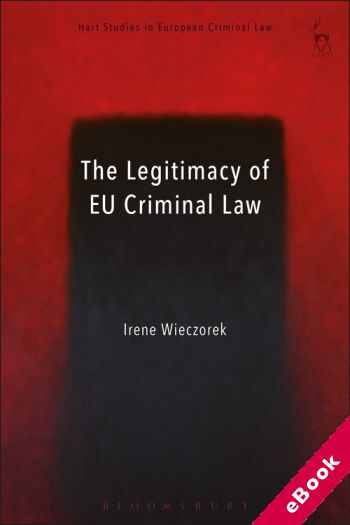
The device(s) you use to access the eBook content must be authorized with an Adobe ID before you download the product otherwise it will fail to register correctly.
For further information see https://www.wildy.com/ebook-formats
Once the order is confirmed an automated e-mail will be sent to you to allow you to download the eBook.
All eBooks are supplied firm sale and cannot be returned. If you believe there is a fault with your eBook then contact us on ebooks@wildy.com and we will help in resolving the issue. This does not affect your statutory rights.
This book traces the history of the EU competence, EU policy discourse and EU legislation in the field of criminalisation from Maastricht until the present day. It asks “Why EU Criminal Law?” looking at what rationales the Treaty, policy document and legislation put forth when deciding a certain behaviour should be a criminal offence. It reads the EU approach to criminalisation relying on a modern and post-modern criminal legal theory framework, read jointly with the theories on the function of EU Harmonisation of national law. On these basis, it demonstrate that while EU constitutional law leans towards an effectiveness-based, enforcement-driven understanding of criminal law, the EU has in fact in more than one instance adopted symbolic EU criminal law, that is criminal law aimed at highlighting what values are important to the EU, but which is not fit to actually deter individuals from harming such values. It questions whether this approach is consistent or in contradiction with the values-based constitutional identity the EU has set for itself.